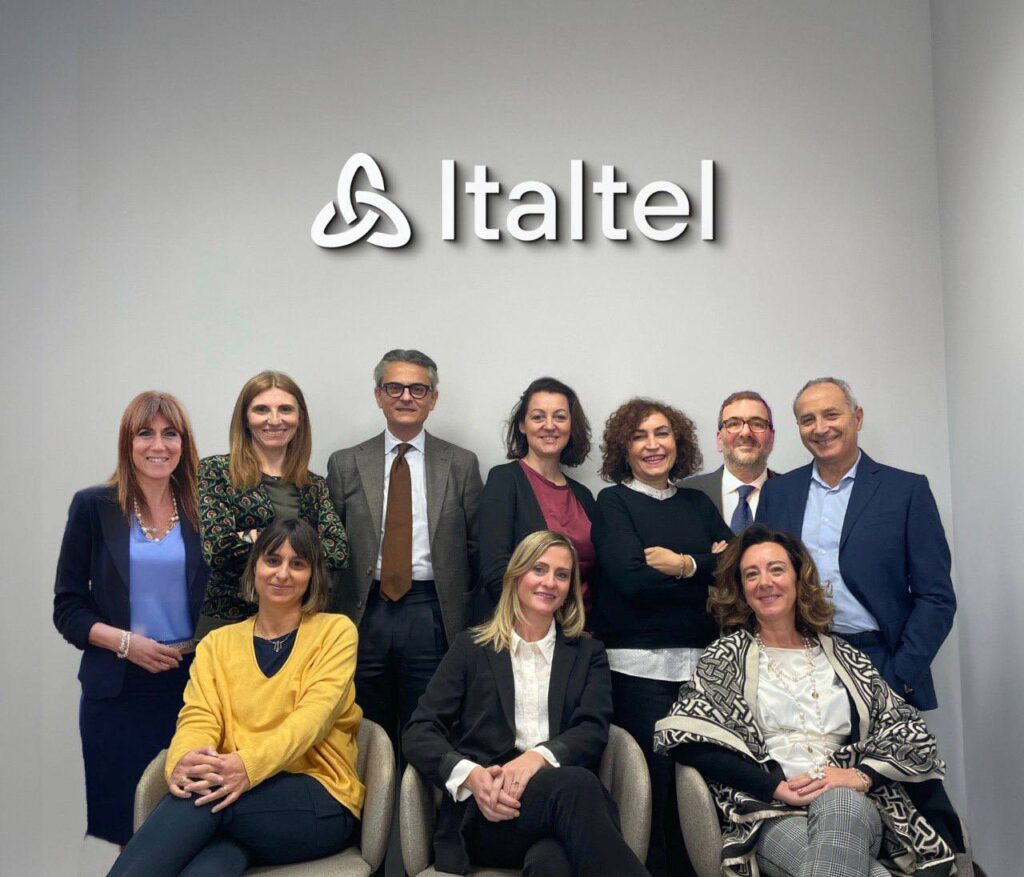PRESS RELEASE
Gender Equality: Italtel achieves the certification UNI/PdR 125:2022
Milan, November 21, 2024 – Italtel has obtained the Gender Equality Certification in accordance with UNI/PdR 125:2022, an important recognition that testifies to the validity of the path taken in recent years to create a more equitable, inclusive and sustainable working environment. UNI/PdR 125:2022 is the reference practice by which the Italian Standards Body (UNI) has defined the guidelines of an internal management system for organizations for gender equality.
The certification, issued by RINA – an international company that offers business assurance services with reference to regulatory standards of management systems in ICT & cyber security, health and safety, diversity & inclusion, agribusiness, transportation and green building – attests to the effectiveness of company policies in 6 key areas: culture and strategy, governance, HR processes, growth opportunities and inclusion of women in the company, gender pay equity, parenting protection and work-life balance.

“
This certification is doubly significant for us: on the one hand, it recognizes our commitment to the promotion of gender equality and inclusion, values that have always been part of our corporate culture; on the other hand, it represents the closing of a cycle with respect to the positive action model introduced by Marisa Bellisario when she led Italtel ,” says Michele Saracino, Chief Human Resources & Organization Officer at Italtel. “For the past two years we have been on an important path of change management and governance renewal, committing ourselves to recover some values, which have always been Italtel’s own and which we consider consistent and fundamental to our growth strategy, organizational development and brand identity.
In line with its sustainability strategy, Italtel has adopted concrete policies in favor of gender equality, striving to make its work environment more equitable and inclusive. The company also promotes a careful work-life balance, offering flexible hours and the possibility of smart working for at least half of the monthly time.
Italtel has an Italtel Group Gender Equality Policy, which expresses a commitment to rejecting and breaking down differences that may impede balanced labor inclusion by implementing actions to foster a collaborative work environment that protects and integrates diversity and gender equality.
In addition, a Speak up Policy has been established that establishes the methods and channels for reporting behavior that conflicts with the principles of its Code of Ethics and, in particular, with the principles that are in the groove of an inclusive culture.
Italtel has also developed a Plan for the Prevention and Treatment of Harassment at Work in which, among other measures, it commits to establishing programs to prevent violence and harassment at work and promote a culture based on respect.
A training course on equality and inclusion involving the entire corporate population, starting with top management, was implemented, as well as an anonymous internal survey on incidents of violence and harassment in the workplace.
In terms of social sustainability initiatives toward its people, Italtel promoted an information campaign through webinars conducted in collaboration with LILT to raise awareness of the importance of cancer prevention for women and men, conducted during October and November 2024.
The company gives voice to its people through the creation of initiatives such as articles and interviews dedicated to telling the story of their career paths, paying attention to aspects of inclusiveness and women’s empowerment, particularly for figures with STEM profiles.
Italtel has always participated in and promoted various initiatives in all the territories and countries where it has its own offices, in Italy and abroad: recently, for example, the Company was involved in the “Claudia! 2.0” project, funded by the Metropolitan City of Milan, to promote female employability and gender equality in the workplace by providing best practices that can guide training policies and improve women’s access to leadership roles and responsibilities.



